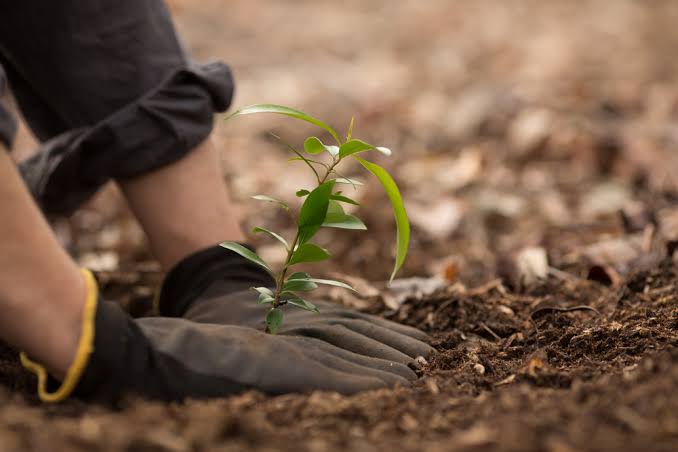
Harnessing the Power of Afforestation to Restore Our World – The East Observer
In the face of escalating environmental challenges, afforestation emerges as a beacon of hope, offering a powerful solution to combat climate change, mitigate biodiversity loss, and revitalize ecosystems worldwide. Afforestation, the deliberate process of planting trees in areas devoid of forest cover, holds immense potential to rejuvenate our planet and secure a sustainable future for generations to come.
Combatting Climate Change
One of the most pressing global issues of our time, climate change, is exacerbated by deforestation and the release of carbon dioxide into the atmosphere. Afforestation acts as a natural carbon sink, absorbing CO2 and mitigating the greenhouse effect. Through photosynthesis, trees sequester carbon, effectively reducing atmospheric carbon levels and stabilizing the climate. Moreover, forests play a crucial role in regulating local temperatures, reducing the risk of extreme weather events such as droughts and floods.
Preserving Biodiversity
The rampant destruction of natural habitats has led to a catastrophic decline in biodiversity, threatening countless species with extinction. Afforestation efforts provide a lifeline for diverse ecosystems, offering sanctuary to a myriad of plant and animal species. Forests serve as crucial habitats, providing food, shelter, and breeding grounds for a vast array of flora and fauna. By restoring forests, we can safeguard biodiversity, preserving the intricate web of life upon which our planet depends.
Enhancing Ecosystem Services
Forests are invaluable providers of ecosystem services, ranging from clean air and water to soil fertility and pollination. Afforestation helps to restore these essential services, improving air quality, mitigating soil erosion, and enhancing water filtration. Additionally, forests play a critical role in supporting agriculture by preventing soil degradation and regulating water cycles. By investing in afforestation, we can bolster the resilience of ecosystems and ensure the provision of vital services for human well-being.
Promoting Sustainable Development
Afforestation not only benefits the environment but also fosters socio-economic development in communities around the world. By creating green jobs in forestry, eco-tourism, and sustainable agriculture, afforestation initiatives offer opportunities for employment and income generation. Moreover, forests provide essential resources such as timber, medicinal plants, and non-timber forest products, supporting local economies and livelihoods. By integrating afforestation into sustainable development strategies, we can foster prosperity while safeguarding the environment.
Overcoming Challenges
While the benefits of afforestation are clear, implementing large-scale reforestation projects requires overcoming various challenges. These include land availability, funding constraints, community engagement, and ensuring the selection of appropriate tree species for diverse ecosystems. Addressing these challenges demands collaboration between governments, civil society, and the private sector, as well as innovative approaches to financing and technology.
Afforestation stands as a powerful tool for restoring our world, offering multifaceted benefits for the environment, biodiversity, and human well-being. By harnessing the regenerative potential of forests, we can combat climate change, preserve biodiversity, and promote sustainable development. However, realizing the full potential of afforestation requires concerted efforts and collective action on a global scale. Together, we can turn the tide of environmental degradation and build a greener, more resilient future for all inhabitants of our planet.
Follow @observerkenya
Your Page Title
The East Observer®.
We come to you.
Want to send us a story or have an opinion to share? Send an email to editorial@observer.co.ke or Join Our WhatsApp CHANNEL
https://www.observer.co.ke/tips/harnessing-the-power-of-afforestation-to-restore-our-world/?utm_source=rss&utm_medium=rss&utm_campaign=harnessing-the-power-of-afforestation-to-restore-our-world
News
Ugandan Citizen Abducted, Held in Secret Detention for Three Months, Sparks Outrage and Calls for Justice

A disturbing new case of unlawful detention has surfaced, highlighting the ongoing human rights crisis in Uganda. A Ugandan citizen was reportedly abducted and held in a secret facility, known as a “safe house,” for three months, only to be released without charge or explanation. This incident, reported by NTV Uganda, has sparked widespread condemnation and renewed calls for accountability regarding human rights abuses in the country.
While the details surrounding the abduction remain unclear, reports indicate that the individual was taken without due process and held incommunicado—an action that has long been condemned by human rights organizations. The victim’s release, with no charges filed and no clear justification, has angered activists and citizens, who view this as yet another case of egregious abuse of power by the state.
“This is a recurring pattern,” said one human rights activist. “Abductions, secret detentions, and unexplained releases have become all too common in Uganda. These acts violate fundamental human rights and erode public trust in the justice system.”
The use of “safe houses,” unregistered detention facilities reportedly operated by security forces, has been a focal point in numerous allegations of torture and illegal imprisonment. Despite repeated calls from both local and international organizations for their closure and accountability for those involved, little action has been taken to address these violations.
This case underscores the urgent need for reform within Uganda’s security apparatus and greater accountability for human rights abuses. Observers hope that drawing attention to these injustices will spur concrete action to bring those responsible to justice and ensure the protection of basic human rights.
As frustration mounts, calls for both domestic and international pressure to hold the government accountable for such crimes grow louder. “One day, there must be accountability for all these crimes against our people,” stated one social media user, reflecting the sentiments of many Ugandans.
News
NUP Gathering Disrupted: Kyagulanyi Alleges Security Force Harassment and Arrests

National Unity Platform (NUP) President Robert Kyagulanyi has accused Ugandan security forces of using excessive force to disrupt a planned NUP gathering. The allegations were detailed in a statement shared on Twitter, following an event held to honor children of NUP supporters who were killed, disappeared, or detained for their political beliefs.
According to Kyagulanyi, security personnel, under the command of an officer identified as Asiimwe, carried out a preemptive operation early in the morning upon learning of the NUP’s plans. The forces allegedly stormed the premises, arrested workers, and deployed tear gas to disperse those present.
“The criminals under the command of one Asiimwe deployed early morning, arrested our workers, and threw tear gas into our premises. They’ve cordoned off the premises and blocked all people from accessing the place,” Kyagulanyi wrote.
Among those reportedly arrested were Saava Peter, Mudenya Samson, and Turyasingura Samson. Kyagulanyi claimed the detained workers were subjected to beatings and interrogated about their political affiliations, with security operatives labeling them as terrorists.
“These JATT operatives asked the workers who they support politically, branding them terrorists and criminals—their only crime being that they work with us. You can imagine the indignity!” Kyagulanyi lamented.
This incident adds to the growing tension in Uganda’s political climate, where opposition parties frequently accuse the government of stifling dissent. Despite the challenges, Kyagulanyi ended his statement with a message of defiance and optimism, proclaiming, “UGANDA WILL BE FREE.”
NUP Gathering Disrupted: Kyagulanyi Alleges Security Force Harassment and Arrests
News
Sudan Demands Apology from Uganda Over Army Chief Muhoozi Kainerugaba’s Threat to Invade Khartoum

Sudan has demanded an official apology from Uganda over “offensive and dangerous” comments made by the chief of Uganda army staff, who threated to invade Khartoum, the Sudan Tribune has reported.
General Muhoozi Kainerugaba, son of Ugandan President Yoweri Museveni and CDF of the Ugandan army, posted two comments on the X platform on Tuesday in which he threatened “to capture Khartoum” with the support of the US President elect Donald Trump after he takes office. The posts were deleted later.
“The government of Sudan demands and official apology from the Ugandan government for the offensive and dangerous comments of the army commander,” Sudan’s foreign ministry said in a statement that the Sudan Tribune said it has seen.
Sudan Demands Apology from Uganda Over Army Chief Muhoozi Kainerugaba’s Threat to Invade Khartoum









